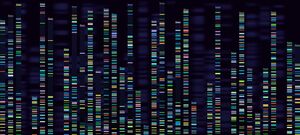
There are no established treatment options for tracheal adenoid cystic carcinoma once it has spread beyond the windpipe, and standard chemotherapy is ineffective in this disease.
Using DNA sequencing of a patient’s cancer, the researchers identified what changes were driving the cancer and used a personalised, precision medicine approach to successfully target this using the experimental drug nirogacestat.
Dr Gary Doherty (Thoracic Cancer Programme Member, Consultant Medical Oncologist and Clinical Lead for Cancer at the East Genomic Laboratory Hub) was the senior author of the research which is published in the journal JCO Precision Oncology.
Dr Doherty said: “I hope that this important proof-of-principle will now lead to clinical trials to improve outcomes for patients with this cancer.
Reference
Kieran, R et al Response of NOTCH1-activated tracheal adenoid cystic carcinoma to the gamma-secretase inhibitor nirogacestat JCO Precision Oncology no. 5 (2021) 1579-1583. Published online October 6, 2021 DOI: 10.1200/PO.21.00228
















